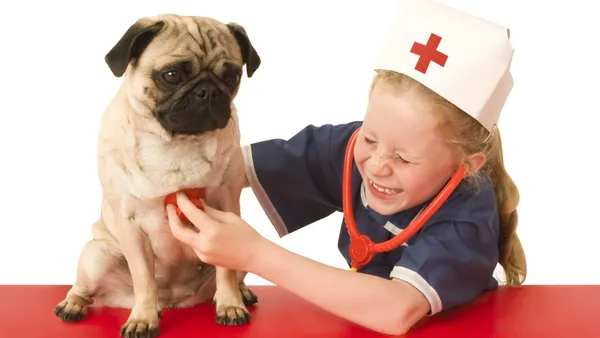Dog Care: Essentials Every Owner Should Know
Dog care involves more than just feeding it’s about ensuring your furry companion stays healthy, happy, and loved. By focusing on proper nutrition, grooming, exercise, training, and veterinary care, you can give your dog a fulfilling life while strengthening the bond you share. Whether you are a first-time dog parent or an experienced owner, understanding the essentials of dog care is the key to raising a well-rounded and joyful pet.
Understanding Your Dog’s Needs
Paragraph:
Every dog has three main needs: emotional, physical, and mental. Emotionally, they require companionship and affection to feel secure and loved. A dog left alone for long periods may experience separation anxiety or behavioral problems. Physically, dogs need daily exercise, a safe shelter, and comfort. Regular walks, play sessions, and a cozy resting place ensure their body stays fit and strong. Mentally, they thrive on stimulation through training, puzzle toys, and interactive play. Meeting all three needs ensures balance in their overall well-being and prevents stress-related issues.
Basic Dog Care Essentials
Feeding and Nutrition
Paragraph:
Feeding is the foundation of dog health. Puppies require three to four meals a day to support their rapid growth, while adult dogs do best with two balanced meals daily. Senior dogs need diets tailored to support joint health and lower activity levels. Always choose high-quality food suitable for your dog’s life stage. Avoid toxic foods such as chocolate, grapes, onions, garlic, and xylitol. Maintaining portion control prevents obesity, one of the most common health problems in dogs.
Fresh Water and Hydration
Paragraph:
Clean, fresh water should always be available for your dog. Hydration is vital for organ function, digestion, and temperature regulation. Signs of dehydration include lethargy, dry gums, excessive panting, and sunken eyes. Always check your dog’s water bowl and clean it daily to prevent bacteria buildup.
Shelter and Comfort
Paragraph:
Whether your dog lives indoors or outdoors, comfort and safety are essential. Indoor dogs need a dedicated space with soft bedding where they can feel secure. Outdoor dogs require weatherproof shelters with proper insulation and shade during summer. Quality bedding supports joint health, especially for older dogs, while a safe resting area reduces stress and helps them relax.
Health and Veterinary Care
Paragraph:
A healthy dog is a happy dog, and regular veterinary care plays a vital role in ensuring well-being. Schedule annual checkups for vaccinations, dental exams, and overall health assessments. Common health issues in dogs include obesity, skin allergies, dental disease, and joint problems. Parasite prevention is another key aspect of care fleas, ticks, and worms can cause serious health risks if ignored. Dog owners should also learn basic first aid, such as treating minor wounds, handling choking, or recognizing signs of heatstroke until professional help is available.
Grooming and Hygiene
Paragraph:
Grooming keeps your dog looking good and feeling healthy. Bathing every 4.6 weeks with dog-safe shampoo helps maintain skin and coat health.Frequent brushing disperses natural oils, minimizes shedding, and avoids matting. Nail trimming should be done every 3.4 weeks to prevent overgrowth and discomfort. Ear cleaning helps reduce the risk of infections, while dental hygiene such as brushing teeth two to three times weekly prevents gum disease and bad breath. Consistent grooming routines not only improve your dog’s appearance but also allow you to spot health issues early.
Exercise and Training
Paragraph:
Exercise is essential for both physical and mental health. Different breeds have varying exercise needs while smaller breeds may be content with short walks, active breeds like Border Collies or Huskies require more intense daily activity. Walking, running, fetch, or agility games keep your dog fit and happy. Training is equally important. Basic commands such as sit, stay, and come build discipline and ensure safety. Socialization with people and other dogs reduces fear and aggression, making your dog confident and well-adjusted.
Mental Stimulation and Enrichment
Paragraph:
A stimulated mind prevents boredom and destructive behavior. Provide puzzle toys, treat-dispensing balls, and training games to keep your dog engaged. Interactive play sessions, such as hide-and-seek or obedience challenges, build trust and strengthen your bond. Daily enrichment activities ensure your dog remains sharp, happy, and less likely to develop anxiety-driven habits.
Special Care for Puppies, Adults, and Senior Dogs
Paragraph:
Each life stage requires different care. Puppies need vaccines, crate training, and early socialization to grow into confident adults. Adult dogs thrive on routine regular exercise, consistent feeding, and grooming habits. Senior dogs need extra attention to comfort and mobility. Specialized senior diets, orthopedic bedding, and gentle exercise help them live comfortably in their golden years. Regular vet checkups become even more important as dogs age to detect and treat issues early.
Common Mistakes in Dog Care (and How to Avoid Them)
Paragraph:
Even well-meaning owners make mistakes. Overfeeding or providing poor-quality food can lead to obesity and nutritional deficiencies. Skipping daily exercise causes restlessness and destructive behaviors. Ignoring dental care allows plaque buildup, which leads to painful infections. Inconsistent training confuses your dog and delays progress. Avoiding these mistakes by staying consistent and attentive ensures better health and harmony.
FAQs on Dog Care
Paragraph:
How often should I bathe my dog? Every 4–6 weeks or as needed, depending on activity and coat type.
What food is safe/unsafe for dogs? Safe: lean meats, plain rice, carrots, pumpkin. Unsafe: chocolate, grapes, onions, garlic, and xylitol.
How much exercise does my dog need daily? Small breeds need at least 30 minutes, while medium to large breeds may need 1 2 hours of activity.
What are signs my dog needs a vet? Loss of appetite, vomiting, diarrhea, lethargy, limping, or sudden behavioral changes should be taken seriously.
Conclusion
Paragraph:
Proper dog care combines health, love, and responsibility. From balanced nutrition to regular vet visits, grooming, exercise, and mental enrichment, every aspect affects your dog’s quality of life. Responsible ownership means being committed to your dog’s well-being at every stage of life. If you are a first-time dog owner, start small, build consistent routines, and always show love—because a happy dog makes for a happier home.














Post Comment